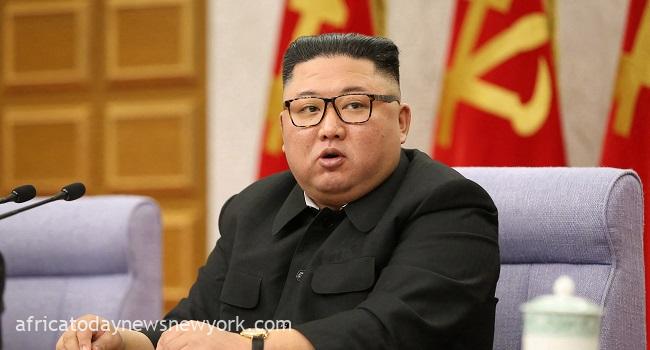North Korea, as reported by state media on Thursday, has officially incorporated its nuclear power status into its constitution, with leader Kim Jong Un urging the development of advanced atomic weapons to address the perceived threat from the United States.
This year (2023), North Korea has conducted an unprecedented number of missile tests, defying warnings from the United States, South Korea, and their allies, despite facing international sanctions due to its nuclear weapons program.
Despite diplomatic endeavors to encourage Pyongyang to renounce its atomic arsenal, these efforts have not succeeded. The constitutional change was prompted by Kim’s declaration last year that North Korea had become an “irreversible” nuclear weapons state.
North Korea’s ‘nuclear force-building policy has been made permanent as the basic law of the state, which no one is allowed to flout’, Kim stated at a meeting of the State People’s Assembly, as per the official Korean Central News Agency.
The rubber-stamp parliament convened on Tuesday and Wednesday.
Kim said that North Korea saw nuclear weapons as essential in addressing what he considered an existential threat from the United States and its allied partners.
The United States has ‘maximized its nuclear war threats to our Republic by resuming the large-scale nuclear war joint drills with clear aggressive nature and putting the deployment of its strategic nuclear assets near the Korean peninsula permanently’, he said.
Read also: Putin Accepts Kim Jong Un’s Invitation To North Korea
Kim labelled the recently improved security alliance between Washington, Seoul and Tokyo as the ‘worst actual threat’.
Consequently, he further said, ‘it is very important for the DPRK to accelerate the modernization of nuclear weapons to hold the definite edge of strategic deterrence’.
Kim also stressed the need to ‘push ahead with the work for exponentially boosting the production of nuclear weapons and diversifying the nuclear strike means’, according to KCNA.
Neighbouring Japan, however, said North Korea’s atomic weapons programme was ‘absolutely unacceptable’.
‘North Korea’s nuclear and missile development threatens the peace and security of our country and the international community,’ Japan’s Chief Cabinet Secretary Hirokazu Matsuno said Thursday in response to the constitutional modification.
‘We will cooperate with the United States, South Korea and the rest of the international community towards the full implementation of relevant UN Security Council resolutions and the full denuclearisation of North Korea.’
Experts noted that the inclusion of North Korea’s nuclear status in its constitution has significantly reduced the likelihood of persuading its leadership to relinquish atomic weapons.
‘Kim’s speech… signifies the permanence of his nuclear force,’ Yang Moon-jin, president of the University of North Korean Studies in Seoul, told the press.
‘This pushes the prospect of North Korea’s denuclearisation even further away.’
Throughout the year, North Korea carried out a series of weapons tests, including intercontinental ballistic missiles, and in the current month, its military conducted exercises described as simulations of a “tactical nuclear attack.”
This year, Pyongyang tried and failed on two occasions to launch a military spy satellite into orbit.
In light of this situation, South Korea and the United States have heightened their security coordination, involving large-scale joint training sessions and trilateral naval operations alongside Japan.
The latest North Korean weapons test, which consisted of two short-range ballistic missiles, occurred as Kim was traveling to Russia to meet with President Vladimir Putin.

